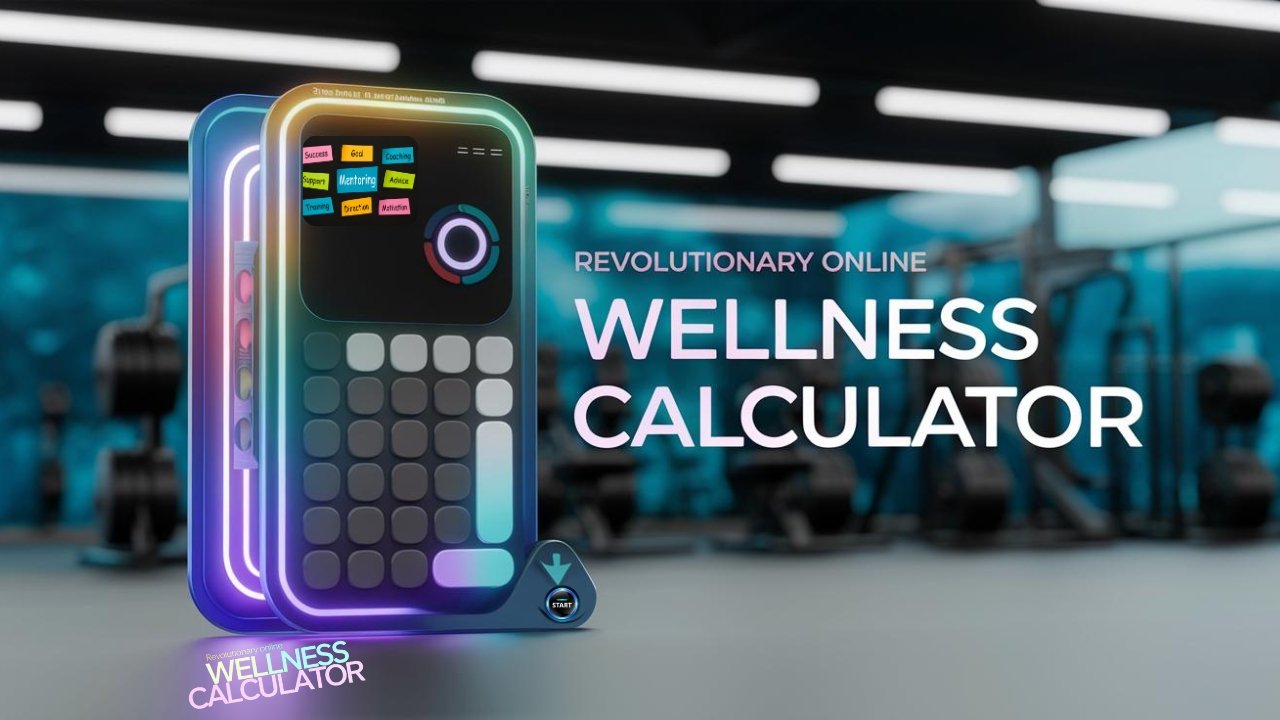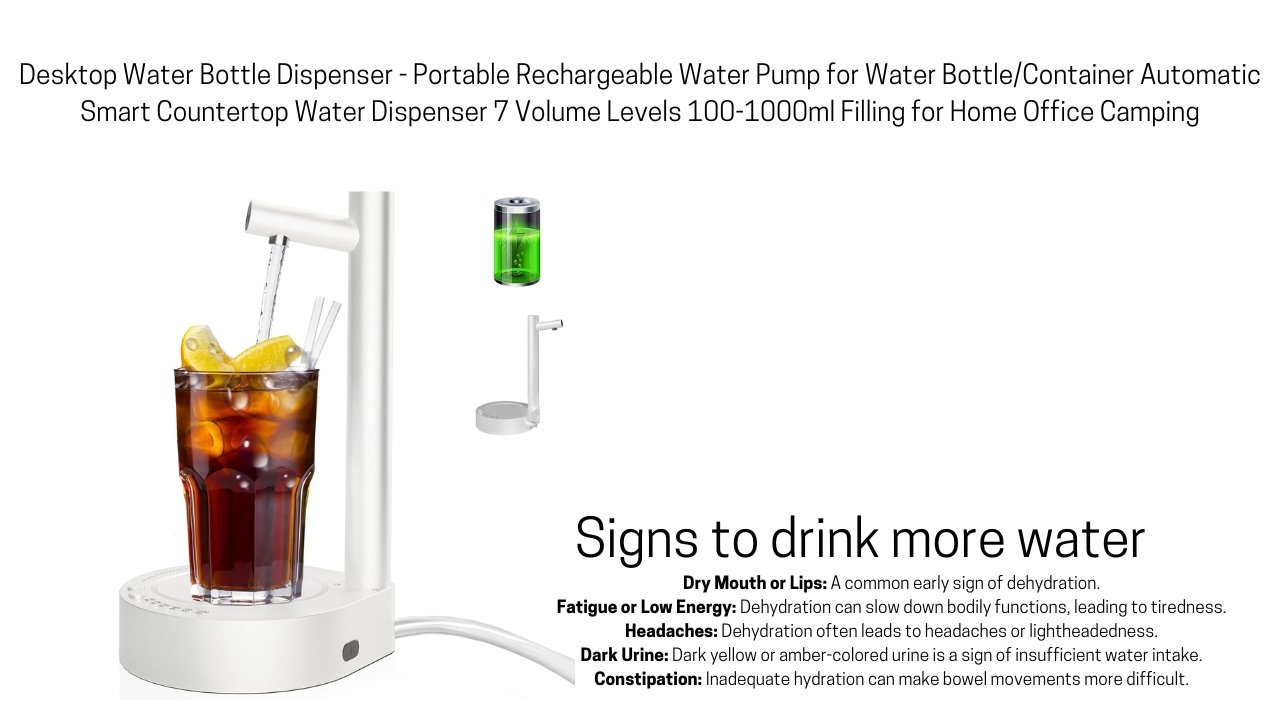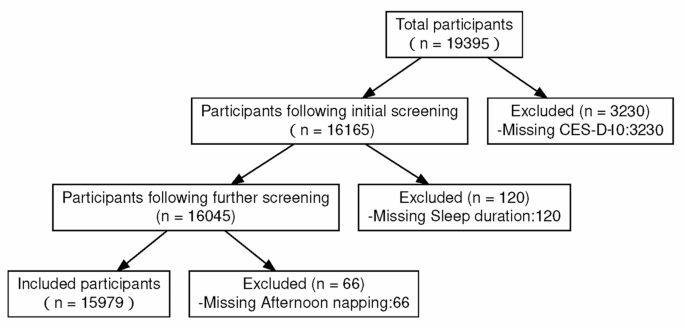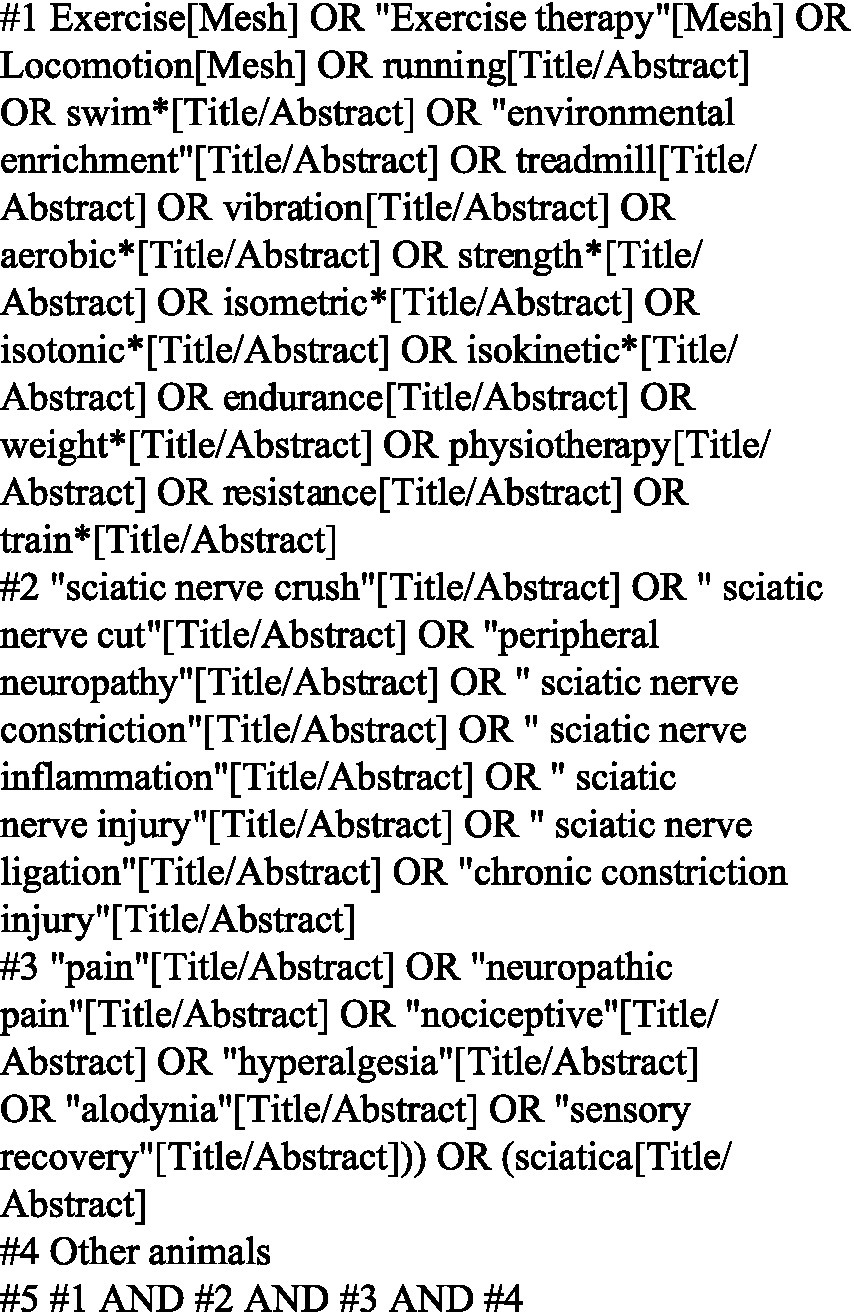Unlock the Secret to Perfect Health: Revolutionary Online Calculator Reveals Your True Wellness Score in Just 60 Seconds! [Free Tool Inside]
Are you ready to take control of your health and unlock your full wellness potential? Look no further! Our groundbreaking online Wellness Calculator is here to revolutionize the way you approach your health journey. In just 60 seconds, you can gain invaluable insights into your overall wellness and take the first step towards a healthier, happier you. Our Wellness Score Calculator is designed to help you track key health metrics such as sleep duration, exercise time, stress levels, diet quality, and BMI. It provides personalized insights and recommendations to help you improve your overall well-being. Find out how much water you need daily based on your weight, activity, and environment. Use our water intake calculator for personalized hydration recommendations too.

Image generated by Rosemary Ingado PA; using Ideogram AI for a revolutionary futuristic online Wellness Calculator.
What is the Wellness Calculator?Our Wellness Calculator is a state-of-the-art online tool designed to provide a comprehensive snapshot of your current health status. By analyzing various aspects of your lifestyle, habits, and physical condition, it generates a personalized Wellness Score that reflects your overall health and well-being.
How the Wellness Score Calculator Works
Using our Wellness Calculator is quick and easy:
- Click on the “water intake calculator”- button below. So,wondering how much water you should drink? Our water intake calculator helps you determine the ideal amount of water you need each day for optimal health and hydration.
- Answer a series of simple questions about your diet, exercise habits, water intake ,sleep patterns, stress levels, and general health (check all other tools on our site).
- Submit your responses.
- Receive your personalized Wellness Score instantly!
It’s that simple! No sign-up required, and your results are completely confidential.
Benefits of Using the Wellness Calculator
Instant Insights: Get a clear picture of your overall health in just 60 seconds.
Personalized Recommendations: Receive tailored advice based on your Wellness Score.
Motivation Boost: Use your score as a baseline to track improvements over time.
Holistic Approach: Our calculator considers multiple facets of wellness, not just physical health.
Increased Awareness: Identify areas of your lifestyle that may need more attention.
Pros and Cons
- Pros:
- Quick and easy to use
- Free of charge
- Provides a holistic view of health
- Offers personalized recommendations
- Can be used repeatedly to track progress
- Cons:
- Relies on self-reported data, which may not always be accurate
- Cannot replace professional medical advice or diagnoses
- May oversimplify complex health issues
- Limited in scope compared to comprehensive medical evaluations
Limitations
While our Wellness Calculator is a powerful tool for gaining insights into your overall health, it’s important to understand its limitations:
- It is not a diagnostic tool and cannot identify specific health conditions.
- The Wellness Score is an estimate based on general health guidelines and may not account for individual variations.
- It does not take into account genetic factors or pre-existing medical conditions.
- The calculator’s effectiveness depends on the accuracy of the information you provide.
Wellness Score Calculator | Personal Health & Fitness Dashboard
Free tool below-health metrics incorporated:sleep duration,exercise time,stress level and diet quality
Our Wellness Score Calculator is designed to help you track key health metrics such as sleep duration, exercise time, stress levels, diet quality, and BMI. It provides personalized insights and recommendations to help you improve your overall well-being.
Wellness Score Dashboard
Your Wellness Score: 0/100
Recommendations
Frequently Asked Questions (FAQs) About Our Wellness Calculator
Q1: How accurate is the Wellness Calculator?
A: Our Wellness Calculator provides a good estimate of your overall wellness based on the information you input. However, it's important to remember that it's not a diagnostic tool. The accuracy depends on the honesty and precision of your answers. For a comprehensive health assessment, always consult with a healthcare professional.
Q2: How often should I use the Wellness Calculator?
A: We recommend using the calculator once a month to track your progress over time. However, if you make significant lifestyle changes, you might want to use it more frequently to see how these changes impact your overall wellness score.
Q3: Is my data safe and private?
A: Absolutely. We take your privacy seriously. The information you input is not stored on our servers and is only used to calculate your wellness score. We do not share or sell any personal information.
Q4: Can the Wellness Calculator detect serious health issues?
A: No, the Wellness Calculator is not designed to diagnose any health conditions. It's an educational tool to give you a general idea of your overall wellness. If you have concerns about your health, please consult with a healthcare provider.
Q5: What factors does the Wellness Calculator consider?
A: Our calculator takes into account various aspects of your lifestyle and health, including diet, physical activity, sleep patterns, stress levels, social connections, and general health habits. However, it doesn't consider genetic factors or pre-existing medical conditions.
Q6: What should I do with my Wellness Score?
A: Your Wellness Score is a starting point for improving your health. Use it to identify areas where you're doing well and areas that might need improvement. Set realistic goals based on your score and work towards improving it over time.
Q7: Can children use this Wellness Calculator?
A: Our Wellness Calculator is designed for adults. Children and teenagers have different health and wellness needs, and their scores would need to be calculated differently. For younger individuals, it's best to consult with a pediatrician for health and wellness advice.
Q8: I got a low Wellness Score. Should I be worried?
A: A low score doesn't necessarily mean you're in poor health. It simply indicates that there might be areas of your lifestyle that could benefit from some changes. Use the recommendations provided with your score to make gradual improvements. If you're concerned, consult with a healthcare professional.
Q9: How does the Wellness Calculator differ from other online health tools?
A: Our Wellness Calculator takes a holistic approach, considering multiple aspects of wellness beyond just physical health. It provides a quick assessment and offers personalized recommendations, all without requiring any sign-up or payment.
Q10: Can I use the Wellness Calculator if I have a chronic condition?
A: Yes, you can use the calculator if you have a chronic condition. However, keep in mind that the calculator doesn't account for specific health conditions. Your results should be interpreted in the context of your overall health situation and in consultation with your healthcare provider.
Remember, while our Wellness Calculator is a useful tool for gaining insights into your overall health, it's not a substitute for professional medical advice, diagnosis, or treatment. Always consult with a qualified healthcare provider for personalized medical guidance.
Glossary
To help you better understand the terms used in our Wellness Calculator and this blog post, here's a handy glossary:
- Wellness: A state of complete physical, mental, and social well-being, not merely the absence of disease or infirmity.
- Wellness Score: A numerical representation of your overall health and well-being, based on various factors such as diet, exercise, sleep, and stress levels.
- Holistic Health: An approach to health that considers the whole person — body, mind, spirit, and emotions — in the quest for optimal health and wellness.
- BMI (Body Mass Index): A measure that uses your height and weight to work out if your weight is healthy.
- Cardiovascular Health: The health of your heart and blood vessels.
- Metabolic Health: How well your body creates and processes energy from food.
- Stress Management: Techniques used to cope with or reduce stress.
- Mindfulness: The practice of maintaining a nonjudgmental state of heightened or complete awareness of one's thoughts, emotions, or experiences on a moment-to-moment basis.
- Nutrition: The process of providing or obtaining the food necessary for health and growth.
- Physical Activity: Any bodily movement produced by skeletal muscles that requires energy expenditure.
- Sleep Hygiene: Habits and practices that are conducive to sleeping well on a regular basis.
- Work-Life Balance: The equilibrium between personal life and career work.
- Mental Health: A person's condition with regard to their psychological and emotional well-being.
- Chronic Disease: A health condition or disease that is persistent or otherwise long-lasting in its effects.
- Preventive Care: Healthcare services that prevent illness or detect health issues at an early stage when treatment is likely to work best.
This glossary should help clarify any terms you might encounter while using our Wellness Calculator or reading about health and wellness topics. Remember, if you're ever unsure about a health-related term or concept, it's always best to consult with a healthcare professional.
About the Author
Rosemary Ingado, PA-C
Rosemary Ingado is a practicing Physician Associate with over a decade of experience in primary care and preventive medicine. She is passionate about empowering patients to take control of their health through education and practical tools. Rosemary's expertise in holistic wellness and her commitment to patient-centered care have been instrumental in the development of this Wellness Calculator.
The views and opinions expressed in this blog and the Wellness Calculator are strictly those of Rosemary Ingado and do not represent the views of any affiliated institutions or organizations.
Disclaimer
The Wellness Calculator is intended for informational purposes only and is not a substitute for professional medical advice, diagnosis, or treatment. Always seek the advice of your physician or other qualified health provider with any questions you may have regarding a medical condition. Never disregard professional medical advice or delay in seeking it because of something you have read on this website or calculated using this tool.
By using this Wellness Calculator, you acknowledge and agree that you are solely responsible for your health decisions and any actions taken based on the information provided by this tool.
Remember, true wellness is a journey, not a destination. Our Wellness Calculator is here to guide you, motivate you, and help you make informed decisions about your health. Are you ready to unlock your true wellness potential? Try our free Wellness Calculator ( Daily Water Intake Calculator) now and take the first step towards a healthier, happier you!
Daily Water Intake Calculator: Calculate How Much Water You Should Drink-Free Tool below
Daily Water Intake Calculator

Hydration Tips Based on Water Intake
1.General Water Intake Guidelines
- For Men: About 3.7 liters (125 ounces) of water per day, including fluids from food and beverages.
- For Women: About 2.7 liters (91 ounces) of water per day, including fluids from food and beverages.
- Easy Rule of Thumb: Aim to drink around 8-10 cups of water a day (1 cup = 240 ml), but adjust based on factors like physical activity and climate.
2. Water Intake Based on Weight:
- Formula: A common recommendation is to drink 0.033 liters (33 ml) of water per kilogram of body weight.
- Example: If you weigh 70 kg, multiply by 0.033: 70 x 0.033 = 2.31 liters/day.
3. Adjusting for Activity Level:
- Moderately Active People: Increase intake by 0.5-1 liter if you exercise regularly, as physical activity increases water loss through sweat.
- Highly Active/Athletes: Drink an additional 1-1.5 liters per day if you're very active or engaging in intense physical exercise.
- Tip: For every hour of exercise, aim to consume an additional 500-750 ml (16-24 ounces) of water.
4. Water Intake Based on Climate:
- Hot Climate: In hot or humid environments, increase your water intake by 10-20%. Aim for an additional 0.5-1 liter depending on your sweat rate.
- Cold Climate: Though water needs might feel less in cold weather, still maintain hydration levels. Cold climates can dehydrate due to dry air. Drink at least 8 cups (2 liters).
5. Hydration Tips:
- Start Early: Begin your day by drinking a large glass of water, as your body becomes dehydrated during sleep.
- Carry a Water Bottle: Having a bottle with you throughout the day is an easy reminder to drink water regularly.
- Set Reminders: Use apps or alarms to remind yourself to drink water every couple of hours.
- Flavor Your Water: If you find plain water boring, add slices of citrus, cucumber, or herbs like mint to enhance the taste.
- Eat Hydrating Foods: About 20% of your daily water intake comes from food. Include water-rich fruits and vegetables like watermelon, cucumber, oranges, and strawberries in your diet.
- Drink Before Meals: Drinking a glass of water before meals can help with portion control and digestion.
- Monitor Urine Color: A simple way to check hydration is by observing the color of your urine. Light yellow is a sign of good hydration, while dark yellow may indicate dehydration.
6. Signs You Need More Water:
- Dry Mouth or Lips: A common early sign of dehydration.
- Fatigue or Low Energy: Dehydration can slow down bodily functions, leading to tiredness.
- Headaches: Dehydration often leads to headaches or lightheadedness.
- Dark Urine: Dark yellow or amber-colored urine is a sign of insufficient water intake.
- Constipation: Inadequate hydration can make bowel movements more difficult.
7. Water Balance & Overhydration:
- While it's important to stay hydrated, overhydration (drinking too much water too quickly) can dilute the body's sodium levels, leading to hyponatremia (water intoxication).
- Listen to your body and avoid drinking excessive amounts in a short period. For most people, 3-4 liters per day should be the upper limit, unless advised by a healthcare professional.
8. Water vs. Other Beverages:
- Limit Sugary Drinks: Soda, sweetened tea, and fruit juices can contribute to weight gain and aren't as hydrating as water.
- Caffeine & Alcohol: These can act as diuretics (making you lose water) when consumed in large amounts. Balance caffeinated or alcoholic beverages with water.
9. Special Considerations:
- Pregnant/Breastfeeding Women: Pregnant women need about 2.3 liters (10 cups) of fluids daily, and breastfeeding women should aim for 3.1 liters (13 cups).
- Elderly: As you age, your body's sense of thirst might decrease. It's important to maintain a regular drinking schedule even if you don’t feel thirsty.
- Children: Water needs vary by age, but children should drink 6-8 cups of water daily, with adjustments for activity.
By following these guidelines and adjusting your water intake according to your personal needs, you'll help keep your body well-hydrated and support overall health.
Disclaimer:
The general water intake guidelines provided are based on average recommendations for healthy adults. Individual hydration needs may vary based on factors such as health conditions, medications, age, and specific lifestyle factors. Please consult with a healthcare professional or registered dietitian for personalized advice on your water intake and hydration needs. These recommendations do not replace medical advice, diagnosis, or treatment.
Affiliate Disclosure:
This page may contain affiliate links. If you click through and make a purchase, we may receive a small commission at no extra cost to you. This helps support the maintenance of this site and allows us to continue providing quality content and helpful tools like the Daily Water Intake Calculator. Thank you for your support!












